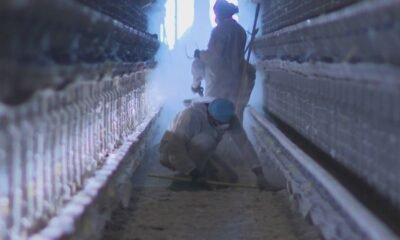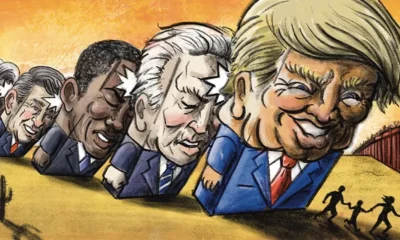Business
Trump’s $500 Million Gamble on Aging Vaccine Tech Leaves Scientists Stumped

The Trump administration’s recent allocation of $500 million for the development of a broadly protective flu vaccine has raised eyebrows among experts in vaccine and pandemic preparedness. Critics argue that the project relies on outdated technology and is still in its infancy, amidst over 200 existing vaccine efforts.
Health and Human Services Secretary Robert F. Kennedy Jr. announced a shift of funds from a pandemic preparedness budget to this vaccine initiative, led by two recently appointed scientists at the National Institutes of Health (NIH). While some applauded the funding, others expressed concerns about its scientific basis and potential conflicts of interest tied to the administration.
Experts likened the funding strategy to betting on a single horse in a race, with William Schaffner of Vanderbilt University emphasizing the importance of diversifying investments in scientific research. The vaccine in question employs technology from the 1970s, overlooking advanced methods developed with federal funding over the years.
Rick Bright, the former head of HHS’ Biomedical Advanced Research and Development Authority, criticized the chosen approach as “first-generation,” when more promising alternatives exist. The current vaccine development is led by Jeffery Taubenberger and Matthew Memoli at the National Institute of Allergy and Infectious Diseases, both of whom have controversial ties to U.S. pandemic policies.
In a news release, HHS touted the Taubenberger-Memoli initiative as the “Generation Gold Standard,” claiming it would enhance transparency and preparedness. However, the goal of creating a vaccine that protects against multiple influenza strains is not novel; previous attempts have already been made by various research consortia.
The NIH’s claim of the Taubenberger vaccine being “in advanced trials” is questionable, as a thorough human study has yet to be published. Though initial safety trials have shown no major side effects, the lack of substantial data raises concerns, even as some experts remain hopeful about the concept of a universal influenza vaccine.
Critics also fear that funding this vaccine may divert crucial resources away from ongoing pandemic responses, particularly as new COVID-19 variants emerge. They question whether this approach reflects a comprehensive strategy or a simplistic misallocation of taxpayer funds.
The administration’s handling of funding decisions has come under scrutiny for lacking transparency, leaving experts like Greg Poland wondering about the vetting process that led to this significant financial commitment. With ongoing debates about the future of vaccine technology and the shifting landscape of pandemic preparedness, the choices made today could have lasting impacts on public health.


















